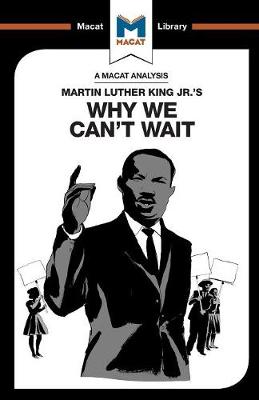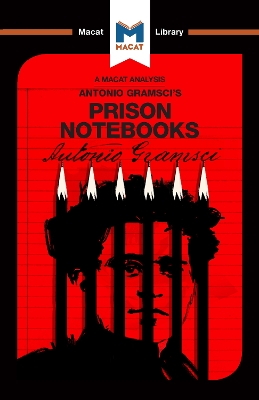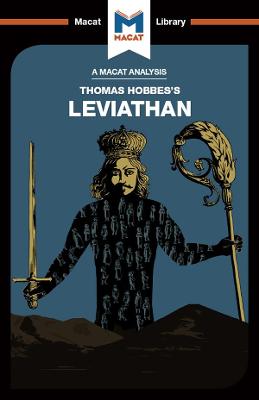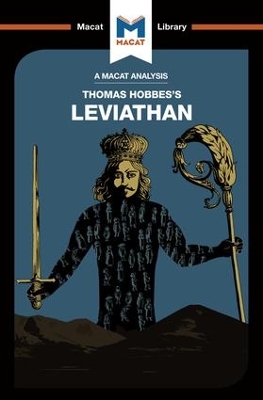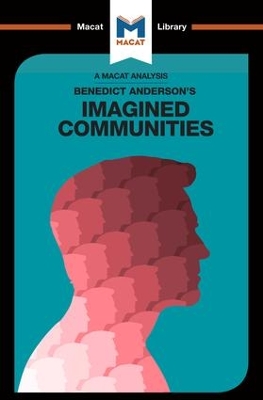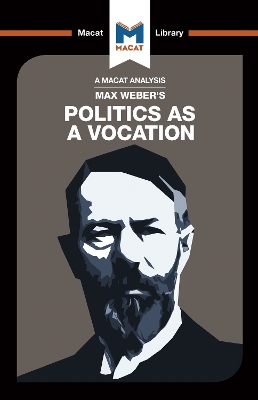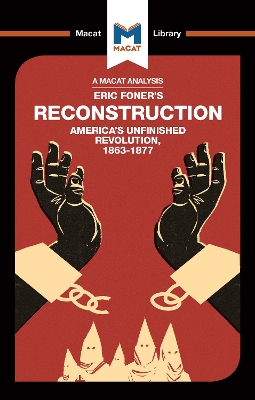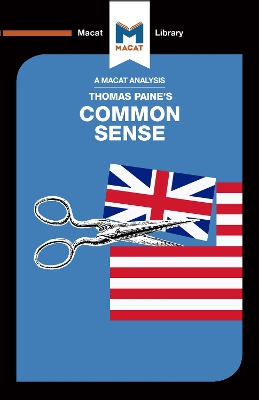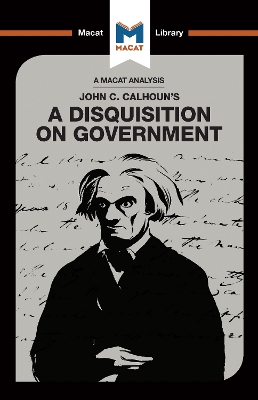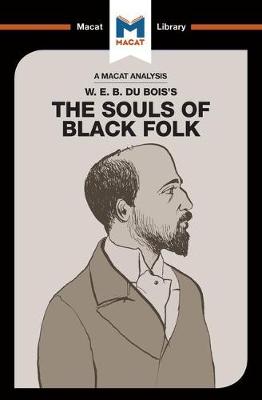The Macat Library
43 total works
Martin Luther King's policy of non-violent protest in the struggle for civil rights in the United States during the second half of the twentieth century led to fundamental shifts in American government policy relating to segregation, and a cultural shift in the treatment of African Americans. King's 1964 book Why We Can't Wait creates strong, well-structured arguments as to why he and his followers chose to wage a nonviolent struggle in the fight to advance freedom and equality for black people following 'three hundred years of humiliation, abuse, and deprivation.'
The author highlights a number of reasons why African Americans must demand their civil rights, including frustration at the lack of political will to tackle racism and inequality. Freedoms gained by African nations after years of colonial rule, as well as the US trumpeting its own values of freedom and equality in an ideological war with the Soviet Union, also played their part. King dealt with the counter-argument that civil rights for blacks would be detrimental to whites in America by explaining that racism is a disease that deeply penetrates both the white and the black psyche. His reasoning dictated that the brave act of nonviolent mass protest would provoke the kind of thinking that would eventually eliminate racism, and give birth to equality for all of 'God's children.'
An Analysis of Antonio Gramsci's Prison Notebooks
by Lorenzo Fusaro and Jason Xidias
Antonio Gramsci's Prison Notebooks is a remarkable work, not only because it was written in jail as the Italian Marxist thinker fell victim to political oppression in his home country, but also because it shows his impressive analytical ability.
First published in 1948, 11 years after Gramsci's death, Prison Notebooks ably demonstrates that the writer has an innate ability to understand the relationship between different parts of an argument. This is how Gramsci manages to analyze such wide-ranging topics - capitalism, economics and culture - to explain historical developments. He introduces the idea of "hegemony," the means by which ruling classes in a society gain, keep hold of and manage their power, and, by carefully looking at how society operates, he reveals the manner in which the powerful deploy a combination of force and manipulation to convince most people that the existing social arrangement is logical and in their best interests - even when it isn't.
Gramsci shows exactly how the ruling class maintains power by influencing both political institutions like the courts and the police, and civil institutions, such as churches, family and schools. His powerful analysis led him to the conclusion that change can only take place in two ways, either through revolution or through a slow but constant struggle to transform the belief system of the ruling classes.
John Lewis Gaddis had written four previous books on the Cold War by the time he published We Now Know - so the main thrust of his new work was not so much to present new arguments as to re-examine old ones in the light of new evidence that began emerging from behind the Iron Curtain after 1990. In this respect, We Now Know can be seen as an important exercise in evaluation; Gaddis not only undertook to reassess his own positions - arguing that this was the only intellectually honest course open to him in such changing circumstances - but also took the opportunity to address criticisms of his early works, not least by post-revisionist historians.
The straightforwardness and flexibility that Gaddis exhibited in consequence enhanced his book's authority. He also deployed interpretative skills to help him revise his methodology and reinterpret key historical arguments, integrating new, comparative histories of the Cold War era into his broader argument.
Thomas Hobbes is a towering figure in the history of modern thought and political philosophy. He remains best remembered for his 1651 treatise on government, Leviathan, a work that shows at the very best the reasoning skills of a deeply original and creative thinker.
Creative thinking is all about taking a novel approach to questions and problems - showing them in a new light. When Hobbes was writing Leviathan, the standard approach to understanding (and advocating for) monarchical government was to argue, using Christian theology, that kings and queens gained their power and legitimacy from God. At a time of intense political turmoil in England - with civil war raging from 1642-51 - Hobbes took the original step of basing a political theory upon reason alone, and focusing on human nature. His closely-reasoned arguments made the book a controversial best-seller across Europe at the time of its publication, and it has remained a cornerstone of political theory ever since. Though Hobbes argued for government by an absolute monarch, many of his ideas and precepts helped form modern liberal ideas of government, influencing, among others, the American Constitution.
Benedict Anderson’s 1983 masterpiece Imagined Communities is a ground-breaking analysis of the origins and meanings of “nations” and “nationalism”.
A book that helped reshape the field of nationalism studies, Imagined Communities also shows the critical thinking skills of interpretation and analysis working at their highest levels. One crucial aspect of Anderson’s work involves the apparently simple act of defining precisely what we mean when we say ‘nation’ or ‘nationalism’ – an interpretative step that is vital to the analysis he proceeds to carry out. For Anderson, it is clear that nations are not ‘natural;’ as historians and anthropologists are well aware, nations as we understand them are a relatively modern phenomenon, dating back only as far as around 1500. But if this is the case, how can we agree what a ‘nation’ is? Anderson’s proposed definition is that they are “imagined communities” – comprising groups of people who regard themselves as belonging to the same community, even if they have never met, and have nothing in common otherwise.
The analysis that follows from this insight is all about examining and breaking down the historical processes that helped foster these communities – above all the birth of printing, and the development of capitalism. Brilliantly incisive, Anderson’s analysis shows how good interpretative skills can form the foundations for compelling and original insight.
An Analysis of Max Weber's Politics as a Vocation
by Tom McClean, Jason Xidias, and William Brett
German sociologist Max Weber’s 1919 lecture Politics as a Vocation is widely regarded as a masterpiece of political theory and sociology. Its central strength lies in Weber’s deployment of masterful interpretative skills to power his discussion of modern politics.
Interpretation involves understanding both the meaning of evidence and the meaning of terms – questioning definitions, clarifying terms and processes, and supplying good, clear definitions of the author’s own. As a sociologist accustomed to working with historical evidence, Weber based his own work on precisely these skills, solidly backed up by analytical acuity.
Politics as a Vocation, written in a Germany shocked by its crippling defeat in World War I, saw Weber turn his eye to an examination of how the modern nation state emerged, and the different ways in which it can be run – interpreting and defining the different types of rule that are possible. It is testament to Weber’s interpretative skills that Politics is famous above all in sociological circles for its clear definition of a state as an institution that claims “the monopoly of legitimate physical violence” in a given territory.
'Reconstruction' is the name given to the period that, beginning shortly before the end of the American Civil War and running until 1877, saw the frustration of federal government's attempts to integrate the newly freed slaves into the American political and economic system. It ended in frustration, disillusionment and also violence, with individual southern states denying rights to freed slaves, preventing them from voting, and largely forcing them back into roles that exploited their labor and prevented them from gaining access to education.
For much of the 20th century, the predominant view of the Reconstruction period was that of the Dunning School, which argued that former slaves were unprepared for the responsibilities of voting and holding office, and that it was their incapability of handling such responsibilities - and not the racist actions of whites - that was largely responsible for the failures of the Reconstruction period. Eric Foner's great work reverses those judgements. Foner adopts a problem-solving approach, asking productive questions of state archives and generating and assessing alternative possibilities to assess the views of the Dunning School in a much wider context. His verdict - that slaves and freedmen were often key figures who shaped the eventual emergence of a more progressive American democracy - is backed up by persuasive reasoning which explains how these results came about and shows how the white establishment, led by President Andrew Johnson, was primarily responsible for the disasters of the Reconstruction era.
Thomas Paine's 1776 Common Sense has secured an unshakeable place as one of history's most explosive and revolutionary books. A slim pamphlet published at the beginning of the American Revolution, it was so widely read that it remains the all-time best selling book in US history.
An impassioned argument for American independence and for democratic government, Common Sense can claim to have helped change the face of the world more than almost any other book. But Paine's pamphlet is also a masterclass in critical thinking, demonstrating how the reasoned construction of arguments can be reinforced by literary skill and passion. Paine is perhaps more famous as a stylist than as a constructor of arguments, but Common Sense marries the best elements of good reasoning to its polemic. Moving systematically from the origins of government, through a criticism of monarchy, and on to the possibilities for future democratic government in an independent America, Paine neatly lays out a series of persuasive reasons to fight for independence and a new form of government. Indeed, as the pamphlet's title suggested, to do so was nothing more than 'common sense.'
Nineteenth-century American politician John C. Calhoun occupies a paradoxical place in the history of political thought – and of critical thinking.
On one hand, he is remembered as a committed advocate of slavery, consistently espousing views that are now considered indefensible and abhorrent. On the other, the political theories that Calhoun used to defend the social injustice of slavery have become the basis of the very systems by which modern democracies defend minority rights.
Despite being crafted in defence of a system as unjust as slavery, the arguments that Calhoun expressed about minority rights in democracies in A Disquisition On Government remain an excellent example of how problem solving skills and reasoning can come together. The problem, for Calhoun, was both specific and general. As matters stood in the late 1840s, the majority of American states were anti-slavery, with only the minority, Southern states remaining pro-slavery. This boiled down to a crucial issue with democracy: the US government should not, Calhoun argued, only respect the wishes of the majority. Instead, democratic government must aim to harmonize diverse groups and their interests – governing, in so far as possible, for everyone. His analysis of how the Southern states could protect what he saw as their right to keep slaves led Calhoun to formulate solutions to the problem of ‘the tyranny of the majority’ that have since helped defend far worthier minority views.
W.E.B Du Bois' The Souls of Black Folk is a seminal work in the field of sociology, a classic of American literature - and a solid example of carefully-structured reasoning.
One of the most important texts ever written on racism and black identity in America, the work contains powerful arguments that illustrate the problem of the position of black people in the US at the turn of the 20th-century. Du Bois identified three significant issues ('the color line'; 'double consciousness'; and 'the veil') that acted as roadblocks to true black emancipation, and showed how each of these in turn contributed to the problem of inequality.
Du Bois carefully investigates all three problems, constructing clear explanations of their significance in shaping the consciousness of a community that has been systematically discriminated against, and dealing brilliantly with counter-arguments throughout. The Souls of Black Folk went on to profoundly influence the civil rights movement in the US, inspiring post-colonial thinking worldwide.

